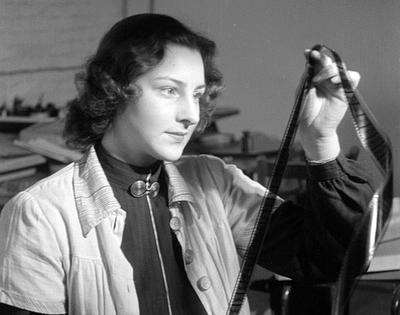Introduction
This AHRC-funded project brings together a core group of researchers with established expertise in different aspects of the film industry to explore the role of women in the Italian film industry between 1945 and 1985.

This project will challenge a longstanding assumption that the many achievements of Italian cinema in the decades after World War Two were entirely due to the creative genius of a handful of male directors and the business acumen of the big producers who supported them. This picture of one of the world’s largest film industries ignores the fundamental role played by women at every level. We will explore female contributions that often remained invisible and which have been granted minimal space in film history. The project will bring to the surface a series of personal trajectories, histories of trades and functions, family stories and institutional practices that will illuminate the workings of an industry of global significance. At the same time, it will engage with creative practitioners, industry officials and workers in Italy and the UK to support - through research and policy recommendations - efforts to address the prevailing culture of gender-discrimination in media industries. In this way, history will be used as a critical weapon to disrupt prevalent understandings of gendered labour and challenge the traditional focus on predominantly male figures of visible achievement.
The project has four core objectives.
- The first objective is one of identification. Research will extend knowledge of women working as screenwriters, assistant directors, editors, production managers, producers, legal officers and set and costume designers.
- The second objective is to investigate the hierarchical and gendered divisions of labour that governed the film industry, leading to the preclusion of key roles to women and a downplaying of the creative aspects of the spheres in which they were active (set and costume design, editing, dubbing, continuity and secretarial roles).
- The third objective is to challenge the way the industry’s history has been written by valorising the personal papers of Mara Blasetti (one of the first female production managers), Cecilia Mangini (a pioneer director of documentaries who was always critical of the industry), and the screenwriter Suso Cecchi D’Amico and her daughters (both of whom later achieved prominence in state media institutions) – all of which will be catalogued and digitised in association with the Cineteca di Bologna. This will be complemented by oral histories of both past and present female film professionals.
- The fourth objective is to interpret the place of women in the industry adapting the insights of international research and those deriving from the methodologies adapted to the Italian case. In publications, documentary films, a photographic exhibition and other outputs, the team will elaborate on project archival work and interviews to highlight the varied nature of the obstacles women faced and the ways in which their labour was often configured as of a service nature and limited to supporting functions. It will shed light on the ways they used family, female sociability and soft skills to make careers for themselves even if proper acknowledgement and rewards were lacking. The project will interrogate the industry’s normative self-images, its understandings of creativity, its divisions of labour and will seek to understand whether there was greater flexibility in medium and small enterprises and in the less prestigious branches of the industry.